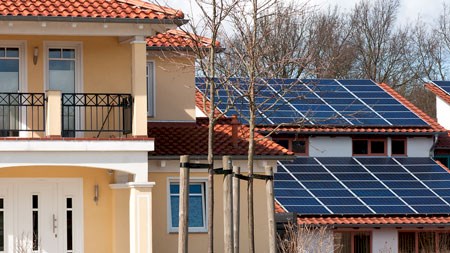Eskom’s woes are not all doom and gloom. There could be an upside for the property market.
There’s no denying South Africa is in the midst of an energy crisis. Almost daily load shedding is now the norm and reportedly will be for years to come. So what does this mean for the property market? FNB’s household and property sector strategist John Loos recently shared some of his thoughts on the matter.
Loos explains that the current scenario arises from the fact that for many years, South Africa has followed a high ‘concentration risk’ strategy in the energy sector. In other words, the sector is dominated by one state owned and protected supplier. As such, there are no real competitors which can pick up the slack when Eskom fails to produce enough electricity.
The upside:
According to Loos, it is conceivable that the energy crisis could potentially boost property values in that new development could be curtailed which will increase the prices of existing property.
Loos explains that the electricity crisis could also impact residential demand: “Higher electricity costs as a result of the electricity ‘crises’ imply higher home running costs. This, we believe, is a contributing factor to the shift over the long term towards smaller sized homes, in a bid to reduce operating costs, and thus contributes towards urban densification, which is not necessarily all bad.”
The downside:
Loos believes that ultimately the apparently deteriorating power situation is likely to be more to the detriment of residential property as well as the property industry’s performance, via the negative impacts on the economy. This is due to its potential to hamper economic and thus household disposable income growth quite significantly, given the electricity supply problem’s long term nature.
Summing things up, Loos says that the sharp oil price drop of recent months provides key “upside potential” to South Africa’s economy and property in 2015. However, he believes that the country’s mounting electricity supply constraints, coupled with the huge concentration risk in this strategic sector currently pose a major downside risk to economic growth and thus forecasts regarding the performance of property prices, as well as to the performance of Property Sector GDP.
SACCI’s stance:
Meanwhile, the South African Chamber of Commerce and Industry (SACCI) recently proposed some interesting measures to tackle the country’s energy crisis. Amongst the measures, SACCI proposed the following:
Load shedding should be restricted to residential areas during the day and municipalities and Eskom should adhere strictly to published load shedding schedules
Working hours should be divided into three shifts spanning 24 hours
A three-shift system should be implemented at the Kusile and Medupi power stations, thus accelerating their supply of power to the national grid
South Africa could be divided into four time zones with some zones starting work earlier than others
Existing power stations should be categorised into A, B and C facilities. Those power stations that require minimal maintenance or repair work should be prioritised over those that required a more extensive overhaul
Industries should be enabled to generate power to sell into the grid immediately
Rampant electricity theft should be mitigated and all outstanding municipal debt should be collected
The possibility of placing combined cycle-power barges offshore, which generate electricity from natural gas or diesel fuel should be investigated
The possibility of privatising Eskom should be debated
For more information relating to these measures, go to http://www.engineeringnews.co.za/article/sacci-proposes-radical-alternatives-to-load-shedding-2015-02-05/rep_id:3182
Although some of the measures may appear somewhat bizarre, it is clear that desperate times call for desperate measures. Interestingly, SACCI says many of these measures could be implemented within a matter of weeks. Food for thought.




